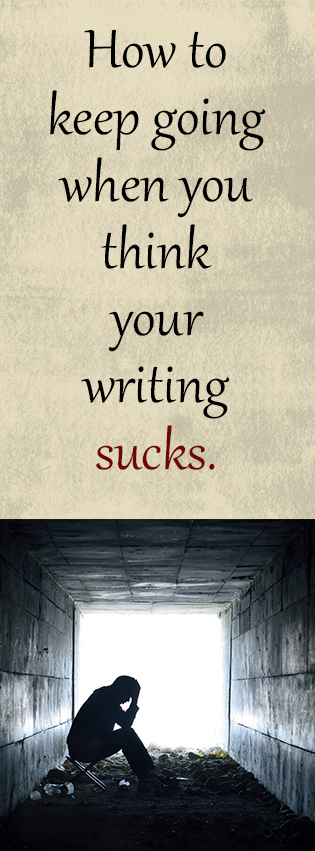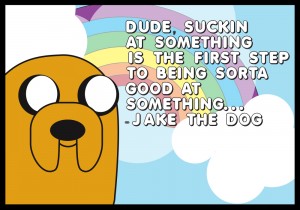I t’s not a problem exclusive to writers. Artists and creators of all kinds suffer this annoying problem. For many of us, all it takes is one negative comment at the wrong time to send us into a spiral of self-doubt and disillusionment. Here are some practical tips.
t’s not a problem exclusive to writers. Artists and creators of all kinds suffer this annoying problem. For many of us, all it takes is one negative comment at the wrong time to send us into a spiral of self-doubt and disillusionment. Here are some practical tips.
1. Keep a praise file.
Take all your good reviews, write down all the sweet things your friends say, even the offhand ones, treasure them like gold. Put them on little notecards and put them into a recipe box. When you start to waver, pull them out and sort through them. They say it takes five good comments to undo a bad one, but sometimes it seems like for us artists, it takes at least fifteen! So write them all down. Don’t have any? Ask for some. Ask your fellow artist friends – they will totally understand and be thrilled to help you out. Which brings me to my next point.
2. Have an encouraging group of friends.
If you don’t have a group of like-minded people, you will fall. It is not good for humans to be alone. We’re not made for it. Starting right now, start looking for a group of encouragers. People who know what the struggles of an artist are. If you’re a writer, find people who love words as much as you do.
It’s critical to find a group that lifts its member up, rather than competing or gossiping. I belong to a group on Facebook called The Dragon’s Rocketship. We’re dedicated to fantasy and scifi. Some are writers, some are artists, some are just fans of geekdom. But our number one rule is “Don’t Be a Dick.” When we catch a whiff of bullying, hurting, racism or sexism, or any other kind of dickishness, we boot the culprit from the group. We cultivate a friendly group that likes to work together and lift each other up. For that reason, we are able to have members of all walks of life, from all religions and all places on the political spectrum, just together to make and enjoy art. It is wonderful. If you like fantasy and scifi, join us. If you’re into something else, I am sure there is a group like us out there – just start looking and don’t stop until you find the one that makes your heart sing.
3. Practice the buddy system
Having a group support system is good. It’s vital. Just as important is having one or two tried and true friends you can ALWAYS turn to. Someone who you could send a thousand words to and they’ll read it within twenty-four hours, just because it’s you sending it. Do you have a friend like that? Know how you find one? Same way you got a partner in science class in grade school. Look around for someone who doesn’t have someone yet. But they have to be the right person, the one who gets your jokes and doesn’t care if you spell things wrong. Or maybe there are different criteria for you. But find that one right person. Then be their friend. Offer to read their things – or read what they already have out there and tell them what you like about it. Do you know how many author blogs are sitting out there with no comments on them at all? Pick somebody and make them a special friend. The right one might not be the first one you try. You’ll know pretty soon whether they are a vacuum who will suck up your friendship and offer nothing back. Walk away quick and try again until you find the right one. THen when you feel low, you’ll have someone you can tell it to, someone who will really care and you can do the same for them, too.
4. Choose Your Music
Liften to the right kind of music. You know what makes you feel happy and what lets you stay in depression longer. Pick the happy stuff. What music lifts your up seems to vary from person to person, so don’t listen to other people’s suggestions. Pick your own. Save a playlist that you can turn to in the future during sadness emergencies.
5. Laughter
What makes you laugh? Silly puns? Fart jokes? Physical comedy? Whatever it is, laughter is healing and refreshing. Have a stock of movies or comedy specials you can pop in when you’re just taking yourself way too seriously.
6. Most importantly, remember this in case you think you really suck
It’s okay if you really do suck. No, seriously. It is completely impossible to get good at something without being absolutely terrible at it first. It takes many, many hours of work to be good at something. Early works are not good. That’s OK. You probably don’t actually suck, but if you do, you’re still hours and hours ahead of the person who isn’t trying. So rejoice and keep going. Two things to remember about your work not being perfect right now.
First, this:
Second, this:
